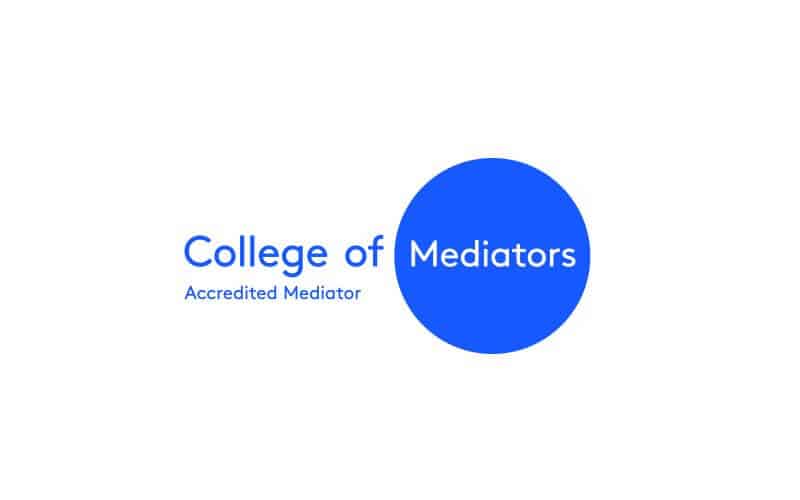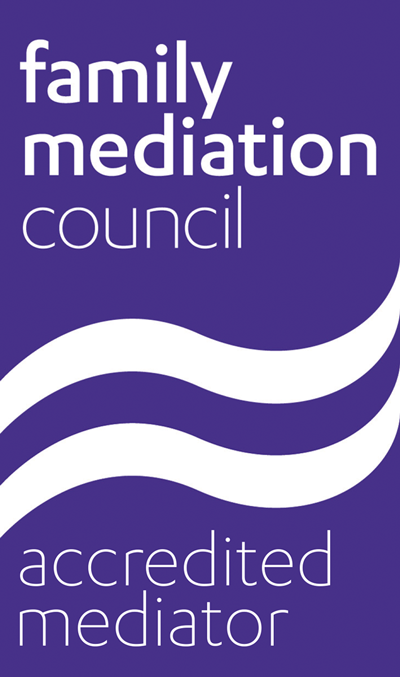Family Law Mediation (Divorce Mediation) – Including Property, Children and Assets
Reasons to choose Wilson Browne
- Direct access to your legal team
- Transparent costs
- MIAMs £240+VAT (£48)=£288 per person
- Free Initial Consultation*
Start Searching for “family mediation near me”
Wilson Browne’s team of experienced family mediation solicitors understands just how difficult divorce proceedings can be. With that in mind, our aim as family law/divorce mediators is to ensure that you and your former partner can come to the best agreement, with as little added stress and unnecessary complication as possible.
We aim to keep mediation costs low, and we’ll provide a transparent breakdown of costs from start to finish.
Our family mediation lawyers work primarily in Northamptonshire and Leicestershire, but are happy to advise throughout the United Kingdom.
There is no Legal Aid for mediation services but we do offer a range of fixed fees.
- Mediation Information and Assessment Meeting (MIAM) is £240+VAT (£48)=£288 per person.
- …the cost of mediation sessions thereafter will be discussed with you at the MIAM.
Family Mediation is provided at either our Northampton, Kettering or Higham Ferrers office.
Contact Wilson Browne Solicitors directly to find out how we can help with family mediation to complete
Complete the online Mediation Referral Form
Mediation Referral Form (for Solicitors use only)
Family Mediation Law Specialists
Unfortunately, marriages break down and relationships come to an end. If you’re struggling to come to an amicable separation agreement, whether the issue is property, children or the division of assets, then our family mediation law specialists are here to help.
Some people may refer to the process as ‘divorce mediation’ but it is important to be clear that family law mediation is not just about the process of divorce – it also deals with property, children and assets and any reference to “divorce mediation” can include these aspects.
Our family law solicitors are experts in family law mediation and, as legal professionals, we can assist in the mediation of agreeable and fair settlements for all parties involved. Keep reading to find out more about Wilson Browne’s family law mediation services.
Contact Wilson Browne today to find out more about our family law/divorce mediation services.
Frequently Asked Questions about Family Mediation
What is Mediation in relation to property, children or assets?
Mediation may be necessary if you and your former spouse are unable to come to a settlement during the divorce process.
Mediation is entirely voluntary, it’s confidential, and it’s overseen by an experienced family law solicitor who can provide expert and impartial arbitration.
Most importantly, successful divorce mediation removes the need to take a dispute to court, saving the family time, money and stress.
What happens at a family law/divorce mediation?
Family mediation in relation to property, children or assets mediation is a proven way to help two former partners come to an agreeable settlement once they’ve decided to legally end their marriage. The first step in mediation is to arrange a consultation with a qualified family law solicitor, before organising mediation meetings between both parties. During these meetings, the family law mediators – the solicitors – provide impartial advice to both sides.
The family mediation process focuses on the immediate disputes at hand. This may include arbitrating on important issues, such as deciding who retains ownership of the family home, how joint savings are divided, or where the children will live. The family mediator will need access to private and personal information, including finances and assets.
The exact details of everything discussed remain confidential. Mediation is based on the following four principles:
- The mediation process is always voluntary, and all parties must agree on the mediator selected for the proceedings.
- The mediation process is confidential unless there are extenuating circumstances relating to vulnerable children or adults.
- The mediator must remain impartial, and negotiate a settlement in the best interests of both parties.
- The final decision and settlement are down to the participants themselves, and no one else.
Once an agreement has been reached and agreed upon by both parties, a legally binding Memorandum of Understanding can be drawn up by the family law solicitors and signed by the former partners. If this cannot be agreed upon, the next stage is to take legal advice and prepare for court proceedings.
How long does family/divorce mediation take?
There’s no set time limit for family or divorce mediation proceedings, and the actual process may be spread out over several months. Individual mediation meetings between the parties will extend for no more than one or two hours at a time, however, and there will be multiple meetings over the course of the divorce.
The divorce process can take anywhere from six months to a year, although this can be shorter or longer depending on how complicated the disputes are and how successful mediation is. The sooner both parties come to an agreement, the sooner they can begin their new lives.
Stage One – what is a Mediation Information and Assessment Meeting (MIAM)?
This is sometimes referred to as the Mediation Information and Assessment Meeting (MIAM).
At this meeting our family law mediator will provide information about the process of mediation and other forms of family dispute resolution;
- start to clarify the areas where there are family disputes, and provide options for resolving them;
- identify other sources of support including financial, emotional and legal;
- At the MIAM our mediator will talk to you about your concerns and your immediate priorities, with the aim of setting an agenda for areas to be negotiated. This typically includes children, finance and property issues. Discussions will take place with each person separately until or unless it is recognised to be appropriate for a full mediation session to take place together.
As well as providing information about what mediation can provide, the family mediator is making an assessment about a person’s ability to mediate. Family or Divorce Mediation will not take place until the ‘agreement to mediate’ is in place and signed by all parties.
What is an Agreement to Mediate?
By signing the agreement to mediate, those involved understand that all communications, (except the disclosure of financial information) are made solely for the purpose of attempting to reach a settlement and are made on the basis that the communications are:
- confidential;
- will not be referred to in evidence in any court proceedings about the same issues;
- will not be used in affidavits or statements.
This promise of confidentiality does not prevent the family or divorce mediator disclosing information where there is significant risk to the life, health or safety of children, the parties, or anyone else, or in relation to money laundering/other unlawful act(s).
A court is not able to require a mediator to disclose information about any mediation which has taken place except where there is an over-riding obligation in law.
In some cases, mediation might not be suitable. If the mediation does not go ahead after the MIAM our family mediator can sign off the appropriate court form to enable an application to proceed to court.
Stage Two – how long does family mediation take?
If mediation goes ahead after the MIAM this takes the form of confidential joint round the table meetings between the couple and the mediator. Sessions last for the period of time those involved agree to, but often for around 90 minutes. There may be between 1-5 joint sessions depending on the issues to be resolved. Usually, more than one session is required to reach an agreement that is likely to work in practice – having more than one session can also allow time for reflection and for arrangements that are being discussed to be tested.
Family Mediation appointments take place in a time-frame that is practical for those involved.
The benefit of a mediator with over 20 years’ of experience in family law is that impartial legal information can be provided to help couples to consider the proposals they wish to make and to achieve a realistic outcome.
Typically, a mediated settlement is achieved more quickly than one that goes through the full court process.
Stage Three - is family mediation legally binding?
If agreement is reached, our mediator can be asked to draft a Memorandum of Understanding to formally record this in writing as a confidential binding agreement between the parties. Outside of the mediation process, the agreement reached between the parties can be used to form the basis of an agreement in ‘open’ correspondence or a Consent Order from the Court.
Participants in mediation are informed of the importance of considering taking legal advice, both during mediation and upon its conclusion.
If full agreement is not reached then alternative options to resolve the outstanding matters can be considered, but with the likelihood that the issues will have been narrowed through the mediation process. Those options can include an application to the Court with the benefit of independent legal advice.
How much does family mediation cost?
Family mediation starts with a MIAM (Mediation Information & Assessment Meeting), which is a meeting (online or in person) you attend with a mediator and talk about the issues you are facing. The initial meeting (MIAM) is priced at £225 plus VAT (£45)= £270 per person.
Family Mediation costs after the initial meeting are dependent upon how many sessions participants agree to have. The usual mediation cost is £185 plus VAT (£37)= £222 per hour per person.
Who pays for family mediation?
If the initial meeting is on an individual basis, each person will pay their own costs. Joint MIAMs and the cost of any mediation that follows will be split equally between the people attending.
Do I have to come to the office to mediate?
The initial assessment meetings and the actual mediation sessions can be conducted remotely with a whiteboard facility so this service, as well as face to face meetings, are offered as an effective and practical alternative to the court process.
If I refuse mediation, will it go against in my in court?
Although mediation is a voluntary process, courts will likely question as to why you didn’t attend during proceedings and it can go against you if you don’t attend without good reason. In fact, it has been a legal requirement in the UK since April 2014 to attend a Mediation Information & Assessment Meeting (MIAM) to help consider the benefits of family mediation, before you can submit an application to courts for child arrangements or financial orders.








